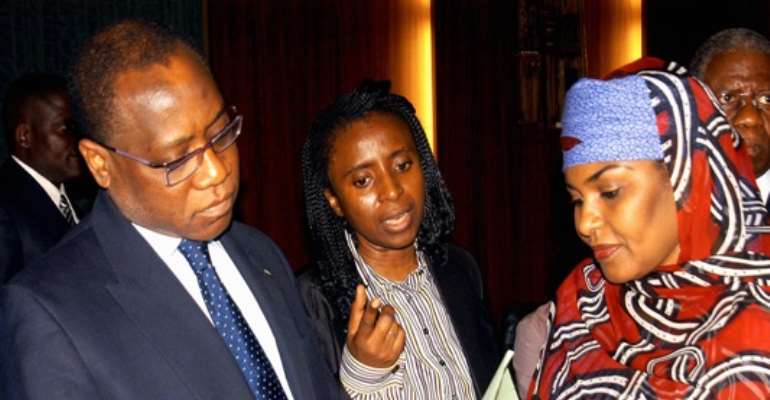FG Approves N154B For Fertilizer, Roads

ABUJA, August 25, (THEWILL) The Federal Executive Council today approved the sum of N154 billion for the procurement of fertilizers, road construction and rehabilitation in the country.
Out of this amount, N89 billion will be for the immediate procurement and delivery of fertilizers to farmers at a subsidy of 25 percent while contracts have been awarded to 30 firms to avoid any form of monopoly. Before now only four companies were used contracted by the Yar’Adua government.
The balance of N65 billion will be spent on construction and rehabilitation of roads across the six geopolitical zones in the country, in order to ease the burden of road transportation.
Another N7.8 billion was approved by FEC for the replacement of the existing power infrastructure at the Murtala Mohammed International Airport, Lagos which has before now experienced incessant power outages.
The decisions were taken at today’ meeting presided over by President Goodluck Jonathan.
Speaking to reporters at the end of the meeting, Minister of State for Information and Communication, Mr. Labaran Maku said the government awarded the contract to supply 900,000 metric tons of fertilizer for delivery to the 36 states of the federation and the FCT for the 2010 farming season.
He said the contract has subsidy element of 25 percent, amounting to N22.227 billion, stressing that the balance would be ploughed back from sales to the states even as he disclosed that there is greater participation in the supply process of the product this year and eight companies got the contract.
Also the Federal Government plans to introduce a legislation that will force federal, state and local governments to roll out long term development plans to enable Nigeria achieve its Vision 2020 targets, expected to cost N32 trillion.
The Vision 2020 agenda intends to make Nigeria one of the top 20 economies in the world by 2020 and the first phase of the implementation plan takes effect from 2010 to 2013.
According to Maku, the second phase is 2014 – 2017 and the third phase, 2018 – 2020.
"In developing the plan, close attention was paid to ‘what went wrong’ and ‘what do we need to do differently’. The total investment required during the plan period is N32 trillion," said Maku.
